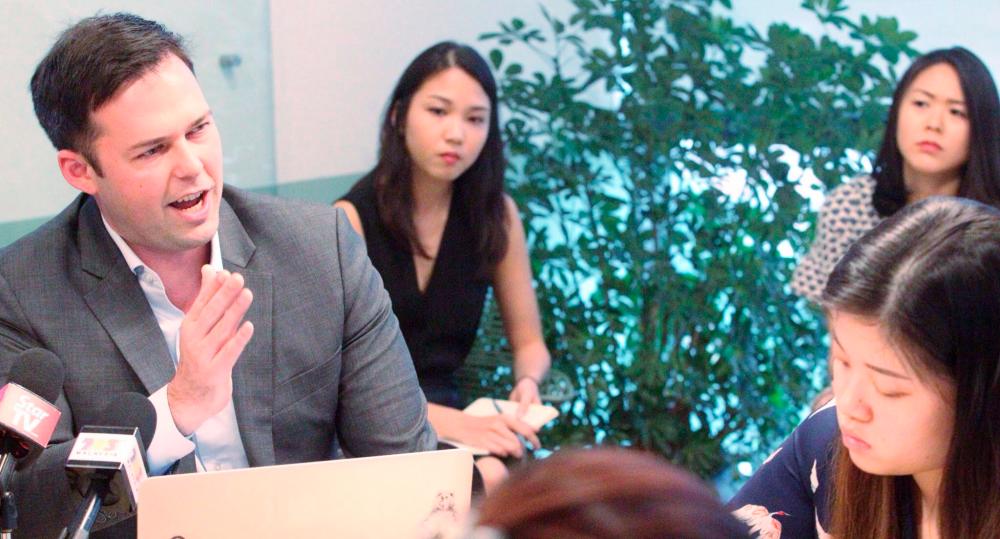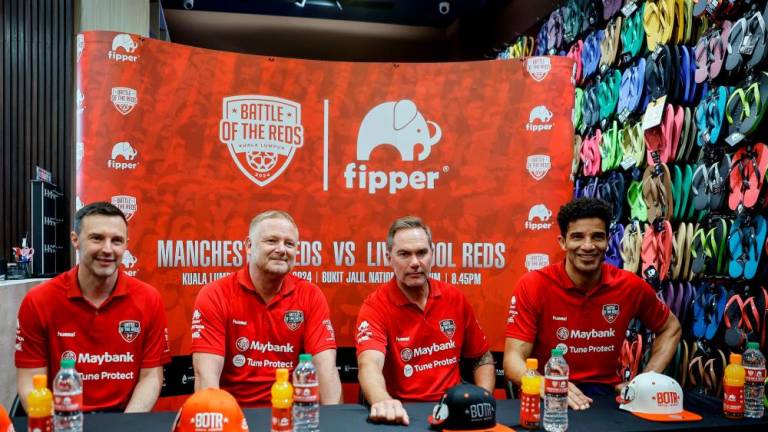KUALA LUMPUR: Airbnb, which is working actively with the government and stakeholders to come up with a consistent regulatory framework in place, has reiterated the need for a level-playing field for all types of accommodation.
“We’ve been out there very publicly saying that the tourism tax that he (Tourism, Art and Culture Minister Datuk Mohamaddin Ketapi) alluded to is something that should apply to everybody across the board. The way that they designed it is that it only applies to certain types of accommodation to which we said let’s get a level-playing field in place,” said Airbnb’s general manager for Southeast Asia, Hong Kong and Taiwan, Mike Orgill (pix).
Speaking to reporters at a briefing today, he said Airbnb has been actively engaging with the government and participating in consultations on the tourism tax structure, which at the moment only applies to some of its listings in accordance with a certain threshold.
“What we’ve said consistently is that there should be a taxation framework that applies to all different types of accommodation whether it be Airbnb or five-star hotel, it should be on a percentage basis so somebody who is earning a lot of money pays a higher amount of tax (same percentage) and somebody who is earning much less is taxed at the same rate. They should make that taxation apply consistently across the board,” he added.
Echoing the minister’s sentiment, he said all of Airbnb’s listings in Malaysia ultimately need to be registered but the question remains on how the registration process will look like, something which the stakeholders are currently discussing.
“At the end of the day, we share the same aspiration and now it comes down to the nuts and bolts on how to make it happen,” he said, adding that the registration process must be nationwide, online, simple and easy to understand.
Orgill said Airbnb is a legal entity and stressed that a distinction must be made between the legality of the company and how the potential regulatory framework would apply to its listings.
Meanwhile, Airbnb said its host and guest community generated some RM3 billion in estimated direct economic impact in Malaysia last year, which is the sum of homes host earnings and estimated guest spending.
Host earnings is based on internal Airbnb data while estimated guest spending is based on nearly 12,000 responses to a voluntary survey sent to Airbnb guest accounts who had taken trips to Malaysia last year.
Orgill said Airbnb’s community-based model means the economic impact is shared by local families, businesses and communities across Malaysia, including places that have traditionally missed out.
“Airbnb contributed about US$3.5 billion in direct economic impact in Southeast Asia. In Malaysia, Airbnb is number one in terms of direct economic contribution in Southeast Asia, it’s one of the top 15 countries in the world and Kuala Lumpur is one of the top 20 cities in the world for us,” he said.
Airbnb said it welcomed more than 3.25 million guests in Malaysia between July 1, 2018 and July 1, 2019, marking a 73% year-on-year growth. Malaysia continues to be the fastest growing country for Airbnb in Southeast Asia for the second year running, with over 53,000 listings in Malaysia.
Airbnb’s growth in Malaysia was also driven by big events such as Hari Raya, whereby 9,700 Airbnb hosts welcomed over 197,000 guests, earning almost RM27.6 million in the first two weeks of the festive period.
According to Airbnb’s Compact Survey on 2,000 Malaysian hosts and guests, half of all hosts said that hosting helped them afford their homes and 40% said that hosting provides supplementary income while 45% of guest spending took place in the local neighbourhoods where they stayed.
However, the Malaysian Association of Hotels questioned Airbnb’s claims of serving 3.25 million guests and generating RM3 billion in direct economic impact, saying that the calculation basis of such economic impact claims was not revealed by Airbnb.
It also highlighted Airbnb’s 53,000 listings in Malaysia, comparing the figure to the Tourism, Arts & Culture Ministry’s database of 250,000 hotel rooms nationwide.
“The number re-vealed by Airbnb is a staggering and worrying 21% of legitimate hotels,” it said in a statement today.










